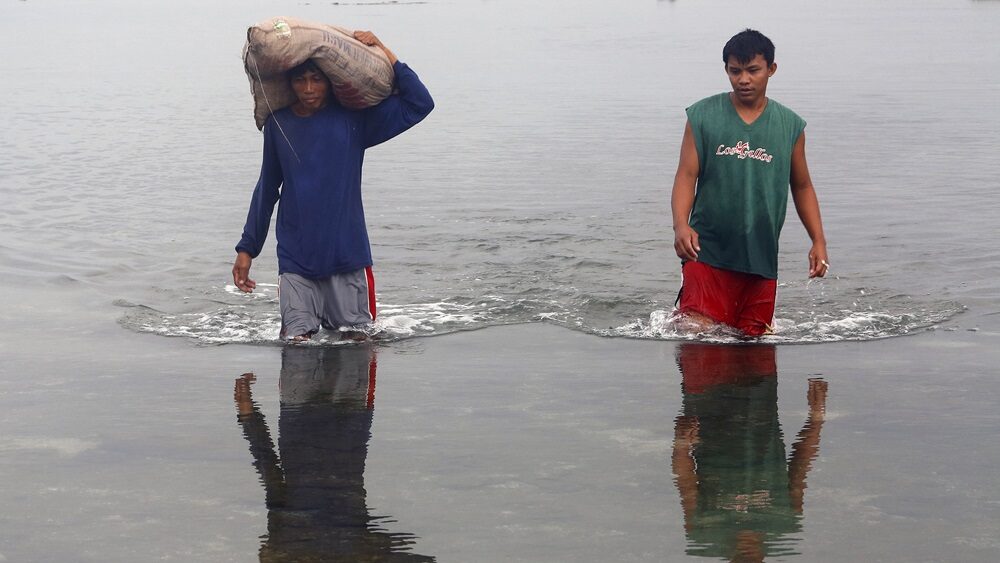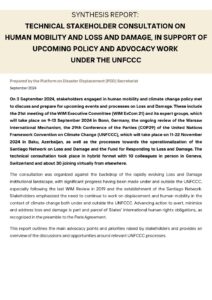Averting, minimizing and addressing loss and damage related with displacement requires integrated approaches that cut…

Loss and Damage: Stakeholders Gathered to Prepare for Key Upcoming Processes and Events
On 3 September 2024, stakeholders engaged in human mobility and climate change policy met to discuss and prepare for upcoming events and processes on Loss and Damage. A report from the consultation presents joint messages and priorities.
The consultation was organized against the backdrop of the rapidly evolving loss and damage institutional landscape, with significant progress made under and outside the UNFCCC, like the establishment of the Santiago Network at COP25 in 2019. The Santiago Network was established under the Warsaw International Mechanism (WIM) for loss and damage as a response to the urgent need for action and support in addressing loss and damage. In 2022 at COP27, countries agreed to establish new funding arrangements for assisting developing countries that are particularly vulnerable to the adverse effects of climate change.
Following the historic declaration of a Fund for Responding to Loss and Damage at COP28 in December 2023, which saw various parties make pledges, the Santiago Network has been working on operationalizing this fund. With the 29th Conference of the Parties (COP29) approaching, key steps will need to be made to ensure the full operationalization of the fund.
In that context, upcoming events and processes discussed by stakeholders include the 21st meeting of the Executive Committee of the Warsaw International Mechanism for Loss and Damage (WIM ExCom 21) and its expert groups (9-13 September 2024 in Bonn, Germany), the ongoing review of the WIM, COP29 (11-22 November 2024 in Baku, Azerbaijan), as well as the processes towards the operationalization of the Santiago Network and the Fund for Responding to Loss and Damage.
The technical consultation took place in hybrid format with 10 colleagues in person in Geneva, Switzerland and about 30 joining virtually from elsewhere. Attendees represented a group of governmental, international and civil society actors working on human mobility and climate change. Together, they reaffirmed the importance of integrating human mobility considerations into all relevant global policy workstreams, and identified concrete steps needed to advance ongoing processes in this direction.
Moving ahead, joint advocacy and common initiatives to discuss these issues and bring them to the attention of parties will be key to advancing towards this objective and ultimately create more inclusive and effective climate action.
This report outlines the main advocacy points and priorities raised by participants during the consultation and provides an overview of the discussions and opportunities around relevant UNFCCC processes.






